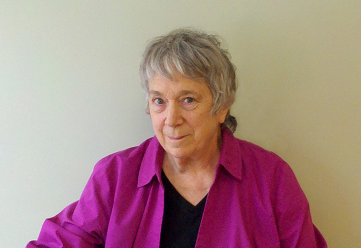Northeast Regulator Eases Proposed Natural Gas Drilling Curbs
December 9, 2010Pa. allows dumping of tainted waters from gas boom
January 3, 2011Administrative hearings to address the status of exploratory shale gas wells in the Delaware River watershed have been narrowed in scope, and may be canceled, after a Wayne County property owners group and the gas companies that hold their leases withdrew from the proceedings.
The Northern Wayne Property Owners Alliance and the gas exploration companies Newfield Exploration Co. and Hess Corp. requested to withdraw from the hearings because all of their planned exploratory wells have already been drilled or will be drilled by the end of the year, landowners group spokesman Peter Wynne said.
At the consolidated hearings, drilling supporters planned to challenge the interstate Delaware River Basin Commission’s June decision to regulate exploratory shale gas wells – those that are used to evaluate the gas-production potential of the rock but are not intended to produce gas for market. Drilling opponents, meanwhile, challenged the commission’s decision to allow 15 exploratory wells that had already been permitted by Pennsylvania regulators to proceed without DRBC oversight.
The DRBC oversees water quality and quantity in the 13,539-square-mile watershed that includes parts of Pennsylvania, New York, New Jersey and Delaware. The commission released draft regulations last week that, when finalized, will apply to all gas drilling in the basin, whether it is for exploration or production.
If the hearings concerning the exploratory wells go on, they will be held in front of former federal judge Edward N. Cahn between Jan. 19 and 26 in Easton.
“We recognized that this is going to cost a tremendous amount of money,” Mr. Wynne said, “and it is all rendered rather moot by the fact that all of the exploratory wells that they wish to do are already done.”
At a meeting on Dec. 8, the DRBC ordered a narrowing of the issues to be aired at the hearing following the withdrawal of the groups. Of the 15 grandfathered exploratory wells in question, all but one has been drilled, canceled or otherwise addressed, it said.
The last grandfathered well, which is planned by Kevin Schrader, a Wayne County businessman, may still be addressed at the hearings if Mr. Schrader plans to develop it outside of the DRBC’s review.
Efforts to reach Mr. Schrader on Monday were unsuccessful.
The environmental groups challenging the DRBC’s grandfathering of the wells claimed credit for the industry’s withdrawal from the hearings.
Barbara Arrindell, the director of Damascus Citizens for Sustainability, said the industry was “obviously … very frightened” by expert reports prepared on behalf of the environmental groups and the commission that outlined health and environmental risks posed by the development of the exploratory shale wells. The reports suggest that such wells pose hazards even though they are not completed with the controversial practice of hydraulic fracturing – the process of breaking apart the gas-bearing rock with high volumes of chemically treated water and sand.
“Until these reports were prepared no one had looked at or compiled any careful analysis of the dangers of the initial aspects of the drilling process,” she said. “The drillers realized, in light of the facts presented by our expert witnesses, that their position is indefensible.”
Mr. Wynne said the landowners group had drafted a letter to Judge Cahn requesting to withdraw from the hearings at least two days before the environmental groups submitted their expert testimony on Nov. 19. He called the claims of influence made by Damascus Citizens for Sustainability “an exercise in self-aggrandizement.”
Jeff Zimmerman, an attorney for Damascus Citizens for Sustainability, said questions about the legality of the grandfathered wells are not moot even though the wells have been drilled.
“If the wells aren’t legally drilled in the first place, then what you do about the violating wells is still a question,” he said. The commission’s order is appealable in a federal court, he said, but the group is still deciding on its next steps.
Contact the writer: llegere@timesshamrock.com



